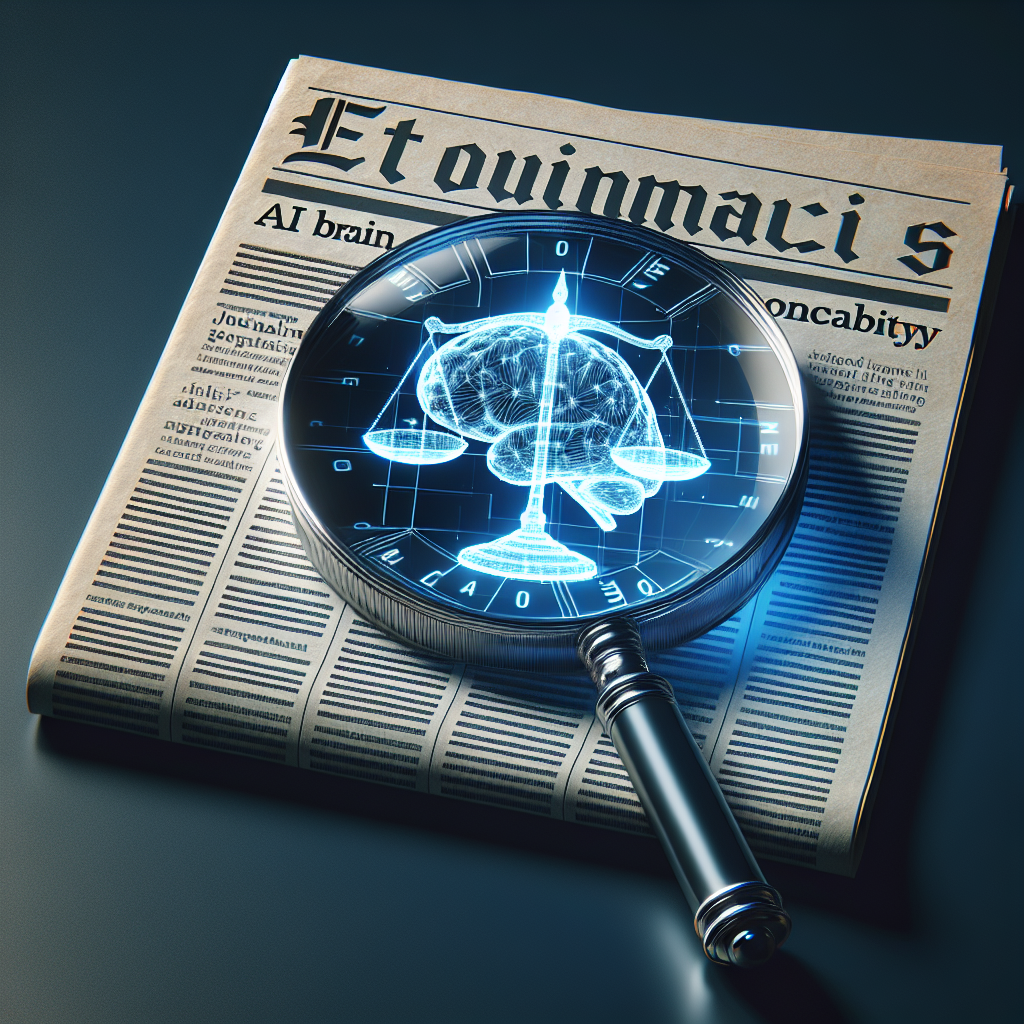The Impact of AI on Journalism Ethics and Accountability
Artificial Intelligence (AI) has revolutionized many industries, including journalism. With the ability to analyze vast amounts of data quickly and efficiently, AI has the potential to improve the quality of reporting and storytelling. However, the use of AI in journalism also raises important ethical questions about accuracy, bias, and accountability.
Ethics in journalism have always been a cornerstone of the profession. Journalists are expected to adhere to strict ethical guidelines that ensure accuracy, fairness, and transparency in their reporting. With the integration of AI in newsrooms, these ethical principles are being put to the test.
One of the main ethical concerns surrounding AI in journalism is the potential for bias. AI algorithms are only as good as the data they are trained on, and if that data is biased, the results will be biased as well. For example, if a news organization’s AI system is trained on data that reflects a particular viewpoint or ideology, it may produce stories that are skewed in that direction. This can lead to misinformation and the spread of false narratives.
Another ethical issue that arises with AI in journalism is the lack of transparency. AI algorithms are often complex and difficult to understand, making it challenging for journalists to know exactly how a story was generated. This lack of transparency can make it difficult to hold journalists and news organizations accountable for their reporting.
Furthermore, the use of AI in journalism raises questions about the role of journalists themselves. As AI systems become more sophisticated, there is a concern that journalists may become too reliant on these technologies and lose sight of their critical thinking skills. This could lead to a decrease in the quality of reporting and a loss of the human touch that is essential in journalism.
Despite these ethical concerns, AI also has the potential to improve journalism ethics and accountability. For example, AI can be used to fact-check stories quickly and accurately, helping to prevent the spread of misinformation. AI can also be used to analyze large datasets and identify trends or patterns that human journalists may overlook. This can lead to more in-depth and comprehensive reporting.
However, in order for AI to enhance journalism ethics and accountability, it is important for news organizations to be transparent about how they are using AI and to ensure that their algorithms are free from bias. Newsrooms should also provide training for journalists on how to use AI tools effectively and ethically.
FAQs
Q: How can AI help improve journalism ethics and accountability?
A: AI can help improve journalism ethics and accountability by fact-checking stories quickly and accurately, analyzing large datasets for trends and patterns, and providing journalists with valuable insights.
Q: What are some of the ethical concerns surrounding AI in journalism?
A: Some of the ethical concerns surrounding AI in journalism include bias in algorithms, lack of transparency in how stories are generated, and the potential for journalists to become too reliant on AI technologies.
Q: How can news organizations ensure that their use of AI is ethical?
A: News organizations can ensure that their use of AI is ethical by being transparent about how they are using AI, ensuring that their algorithms are free from bias, and providing training for journalists on how to use AI tools effectively and ethically.
Q: Will AI replace human journalists in the future?
A: While AI has the potential to automate certain tasks in journalism, such as fact-checking and data analysis, it is unlikely to replace human journalists entirely. The human touch and critical thinking skills of journalists are essential in storytelling and reporting.

